
Close

Solar power is considered a sustainable energy source, as it is inexhaustible and environmentally friendly. No greenhouse gases are produced, including carbon emissions or other heat-trapping gases. It prevents the harm to the environment linked with extracting fossil fuels through mining or drilling. Moreover, solar energy requires minimal to no water, in contrast to power plants utilizing steam turbines for electricity generation. Given this, Navoi State Pedagogical Institute gives importance to utilizing renewable energy sources in order to save on energy consumption by endorsing the use of solar panels. Solar panels cover the total electricity consumption of the institute. Our institute regularly tracks energy consumption and identifies high energy wastage spots. According to results of latest investigation, street lamps and water heater have been found as high energy wastages. Therefore, Navoi State Pedagogical Institute installed 100 street lamps with solar batteries and 45 water heaters operates by solar batteries in 2023.
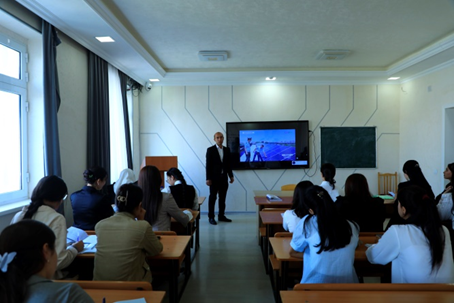
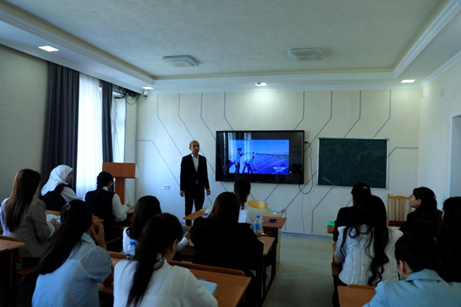
Workshop and training on energy
NSPI students and staff have received energy conservation and energy saving training and workshops. The Energy Environment and Safety organization (EESH) has run all training and workshops, offering 12 courses annually. These exercises encourage brainstorming and knowledge sharing among participants while offering basic strategies and tactics for reducing greenhouse gas emissions and energy use. Consequently, over 6,000 people attended throughout the course of two years.
Road shows and exhibitions
Ten times a year, there are ongoing road displays and exhibitions about climate change and energy saving. These exercises offer basic advice and methods for lowering greenhouse gas emissions and conserving energy.
Promotion activities
Using a monthly promotion activities plan, NSPI offers promotional activities on campus through the use of posters, energy-saving advice pocket guides, leaflets, and media. As a result, over 19,000 students and staff participated in over 30 promotional activities.
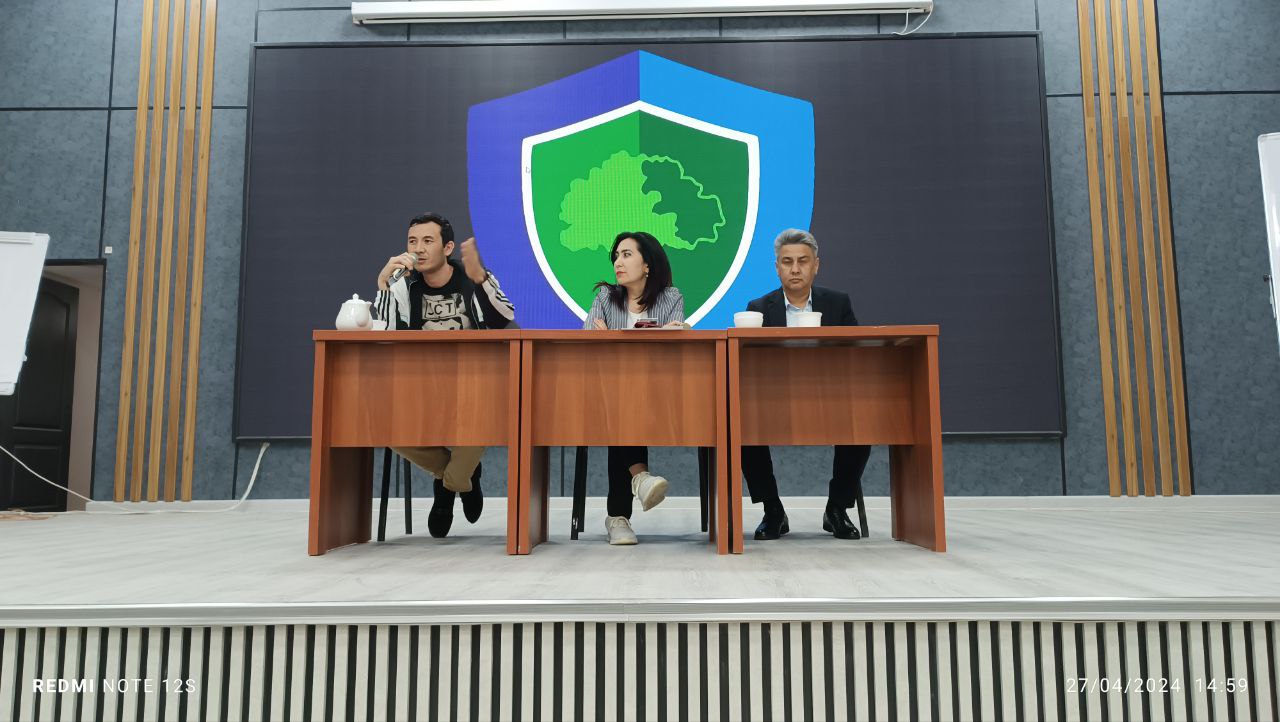
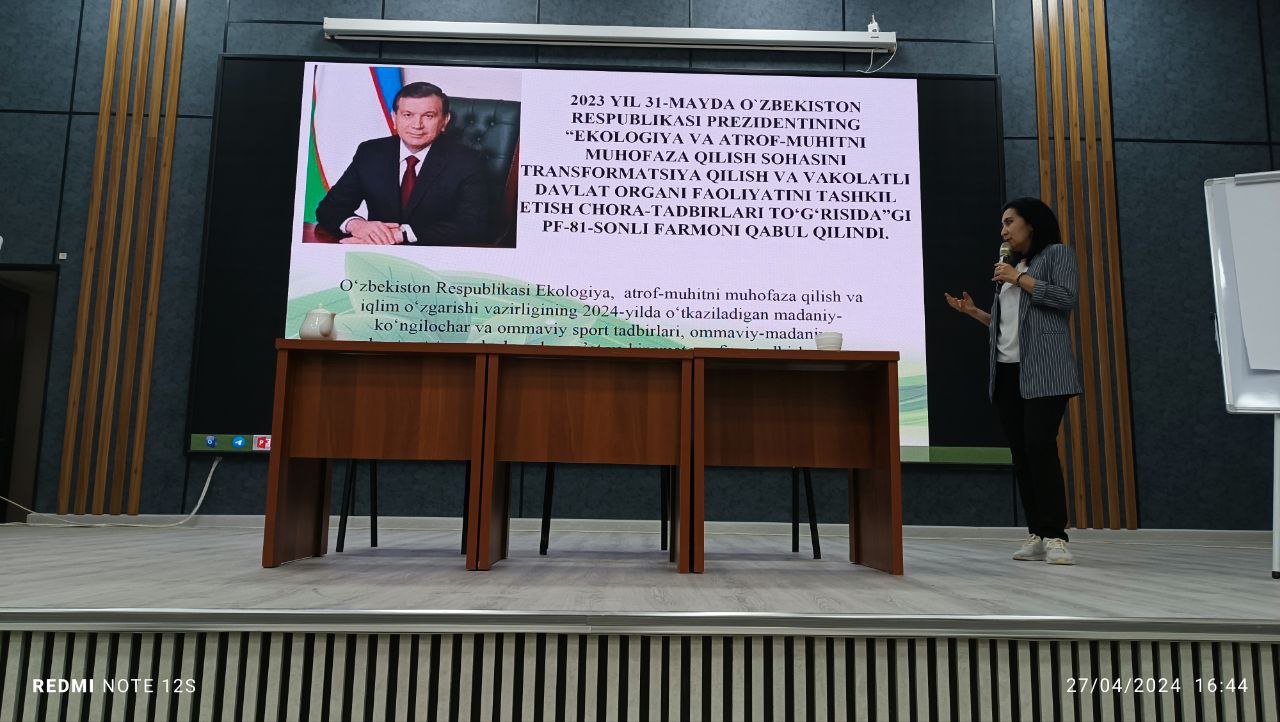
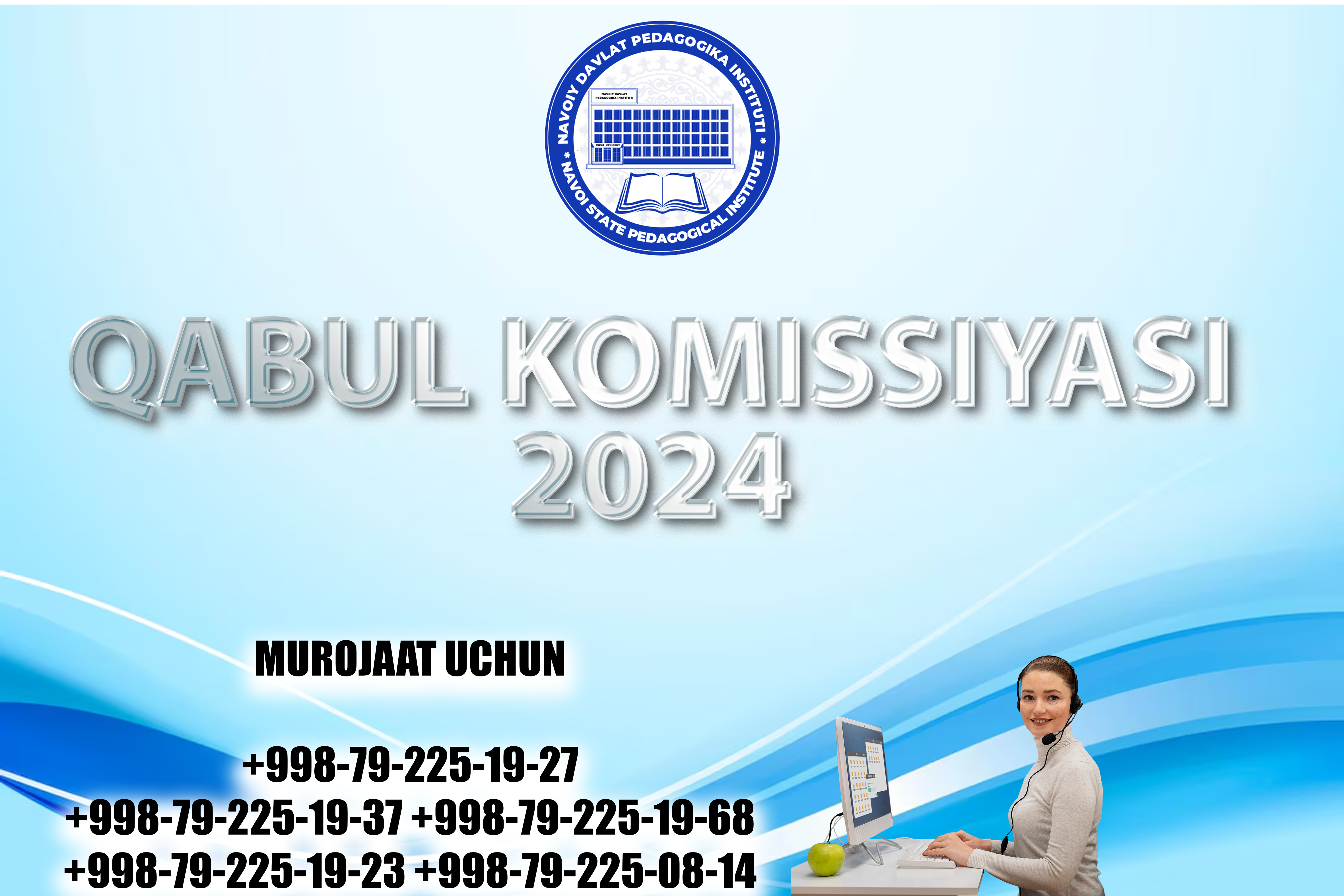
O`zbekiston Respublikasi Davlat madhiyasining matni va musiqasi O`zbekiston Respublikasining 1992 yil 10 dekabrdagi 768-XII-sonli «O`zbekiston Respublikasining Davlat madhiyasi to`g`risida»gi Qonuni bilan tasdiqlangan.
O`zbekiston Respublikаsining Dаvlаt mаdhiyasi O`zbekiston Respublikаsi Dаvlаt suverenitetining rаmzidir.
O`zbekiston Respublikаsining Dаvlаt mаdhiyasigа zo`r ehtirom bilаn qаrаsh O`zbekiston Respublikаsi hаr bir fuqаrosining vаtаnpаrvаrlik burchidir.
Mutal Burhonov musiqasi
Abdulla Oripov so’zi

Serquyosh hur o’lkam, elga baxt, najot,
Sen o’zing do’stlarga yo’ldosh, mehribon!
Yashnagay to abad ilmu fan, ijod,
Shuhrating porlasin toki bor jahon!
Naqarot:
Oltin bu vodiylar – jon O’zbekiston,
Ajdodlar mardona ruhi senga yor!
Ulug’ xalq qudrati jo’sh urgan zamon,
Olamni mahliyo aylagan diyor!
Bag’ri keng o’zbekning o’chmas iymoni,
Erkin, yosh avlodlar senga zo’r qanot!
Istiqlol mash’ali tinchlik posboni,
Xaqsevar, ona yurt, mangu bo’l obod!
Naqarot:
Oltin bu vodiylar – jon O’zbekiston,
Ajdodlar mardona ruhi senga yor!
Ulug’ xalq qudrati jo’sh urgan zamon,
Olamni mahliyo aylagan diyor!

Davlat bayrog`i O`zbekiston Respublikasining 1991 yil 18 noyabrdagi 407-XII-sonli «O`zbekiston Respublikasining Davlat bayrog`i to`g`risida»gi Qonuni bilan tasdiqlangan.
O`zbekiston Respublikаsining Dаvlаt bаyrog`i O`zbekiston Respublikаsi dаvlаt suverenitetining rаmzidir.
O`zbekiston Respublikаsining Dаvlаt bаyrog`i xаlqаro munosаbаtlаrdа O`zbekiston Respublikаsining timsoli bo`lаdi.
O`zbekiston Respublikаsining Dаvlаt bаyrog`i — bаyroqning butun uzunligi bo`ylаb o`tgаn to`q moviy rаng, oq rаng vа to`q yashil rаngli uchtа endаn tаrkib topgаn to`g`ri to`rtburchаk shаklidаgi mаtodir.

Davlat gerbi O`zbekiston Respublikasining 1992 yil 2 iyuldagi 616-XII-sonli «O`zbekiston Respublikasi Davlat gerbi to`g`risida»gi Qonuni bilan tasdiqlangan.
O`zbekiston Respublikаsi Dаvlаt gerbi quyidаgi ko`rinishgа egа: tog`lаr, dаryolаr vа so`l tomoni bug`doy boshoqlаridаn, o`ng tomoni esа chаnoqlаri ochilgаn g`o`zа shoxlаridаn iborаt chаmbаrgа o`rаlgаn gullаgаn vodiy uzrа quyosh zаrrin nurlаrini sochib turаdi. Gerbning yuqori qismidа Respublikа hurligining rаmzi sifаtidа sаkkizburchаk tаsvirlаngаn bo`lib, uning ichki qismidа yarim oy vа yulduz tаsvirlаngаn. Gerbning mаrkаzidа bаxt vа erksevаrlik rаmzi — qаnotlаrini yozgаn Humo qushi tаsvirlаngаn. Gerbning pаstki qismidа O`zbekiston Respublikаsi Dаvlаt bаyrog`ini ifodа etuvchi chаmbаr lentаsining bаntidа «O’zbekiston» deb yozib qo`yilgаn.
O`zbekiston Respublikаsi Dаvlаt gerbining rаngli ko`rinishidа: Humo qushi vа dаryolаr — kumush rаngidа; quyosh, boshoqlаr, pаxtа chаnoqlаri vа «O’zbekiston» yozuvi — oltin rаngidа; g`o`zа shoxlаri vа bаrglаri, tog`lаr vа vodiy — yashil rаngdа; chаnoqlаrdаgi pаxtа — oq rаngdа; lentа — O`zbekiston Respublikаsi Dаvlаt bаyrog`ining rаnglаrini аks ettiruvchi uch xil rаngdа; sаkkizburchаk — oltin zаrhаl bilаn hoshiyalаngаn holdа hаvo rаngdа; yarim oy vа yulduzlаr — oq rаngidа tаsvirlаngаn.